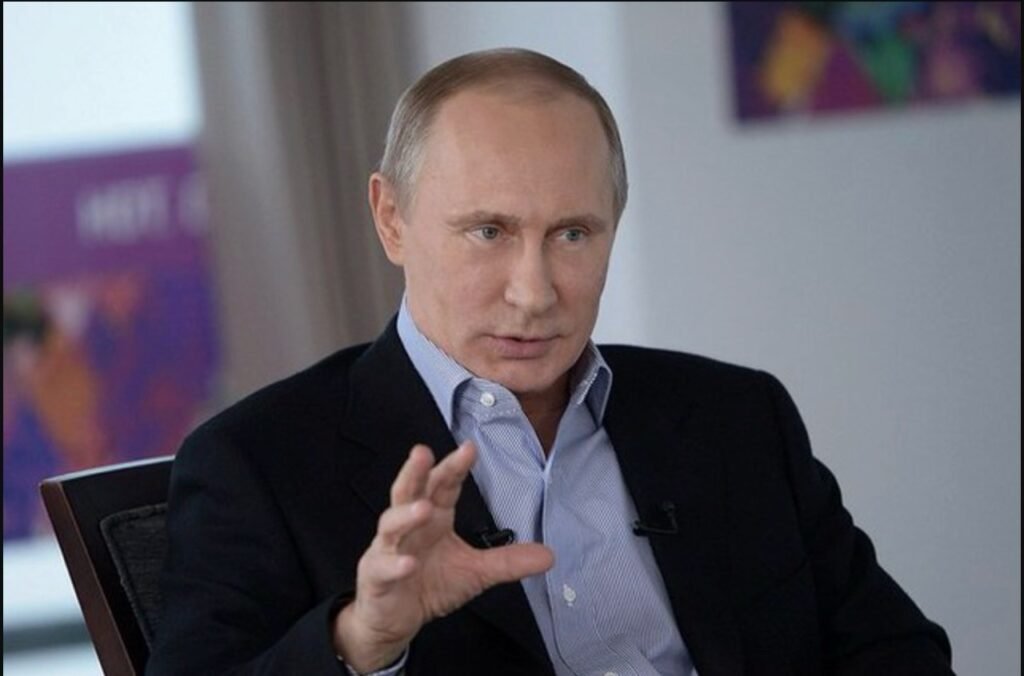Russian President Vladimir Putin has dismissed Western proposals to send a “reassurance force” to Ukraine, warning that any foreign troops deployed would be treated as “legitimate targets.”
The remarks came just a day after a Paris summit where French President Emmanuel Macron announced that 26 of Kyiv’s allies had formally committed to providing security guarantees the moment a ceasefire takes effect. According to Macron, support could involve deployments “by land, sea or air” — though he declined to name specific countries.
Putin sought to undermine the initiative, declaring that Western soldiers stationed in Ukraine, particularly ahead of any ceasefire, would be in Russia’s crosshairs. “If decisions are reached that will lead… to long-term peace, then I simply don’t see the point in [foreign troops’] presence,” he said at an economic forum in Vladivostok.
A Fractured Diplomatic Track
Hopes for a ceasefire remain slim. A high-profile Alaska summit last month between Putin and U.S. President Donald Trump briefly raised expectations for direct talks with Ukrainian President Volodymyr Zelensky. But on Friday, Putin dismissed the utility of such a meeting: “I am ready for contact with the Ukrainian leader, but I do not see much point. It is nearly impossible to reach agreement with the Ukrainian side on key issues.”
Kremlin spokesman Dmitry Peskov echoed the line, hailing Trump’s “very constructive efforts” while denouncing what he called Europe’s “outrageous efforts… to provoke continuation of the war.”
Meanwhile, the so-called “Coalition of the Willing” — led by France and the United Kingdom — has been drafting plans to guarantee Ukraine’s security in the event of a ceasefire. Macron emphasized that the force would be defensive in nature: “It does not have the will or the objective of waging war against Russia,” he said, describing it as a deterrent against “any new major aggression.”
Divergent Visions
Zelensky hailed the Paris summit’s outcome as “the first concrete step” toward post-war security guarantees. Washington, however, has yet to spell out the extent of its involvement. Trump has suggested that U.S. backing could “probably” include air support, with Zelensky pressing for “maximum protection for Ukraine’s skies.”
Putin, for his part, insisted that Moscow should play a role as one of Ukraine’s security “guarantors” — an idea Kyiv and its Western allies reject outright. “Any foreign forces, whether belonging to NATO or otherwise, would be a danger to Russia,” Peskov told the BBC, describing Moscow as “an enemy of NATO.”
NATO Secretary General Mark Rutte dismissed the notion of Russian veto power: “Why are we interested in what Russia thinks about troops in Ukraine? It’s a sovereign country. It’s not for them to decide.”
Ceasefire Before Peace?
While Kyiv has argued that a ceasefire must precede any broader peace deal, Moscow insists its campaign will not end until a full agreement is signed. Western diplomats warn that Putin may be dragging out negotiations to consolidate territorial gains after 42 months of war.
Several European leaders have pressed for immediate guarantees. UK Prime Minister Sir Keir Starmer called allied support an “unbreakable pledge.” German Chancellor Friedrich Merz said the priority was to secure a ceasefire and then provide “strong security guarantees.”
A French presidential source pointed to historical precedent, citing the Korean peninsula’s decades-long armistice as proof that a ceasefire without a full peace treaty could still hold — provided it was backed by credible allied deterrence.
Playing for Time
Putin, who met this week with China’s Xi Jinping and North Korean leader Kim Jong Un, struck a cautiously optimistic note, saying there was “a certain light at the end of the tunnel.” But he cast doubt on the near-term prospects for a deal, citing Ukraine’s constitutional requirement for a referendum on territorial changes and its martial law restrictions.
Russia has annexed five Ukrainian regions since 2014 but exercises full control only over Crimea.
Zelensky has dismissed Putin’s proposal to host talks in Moscow as unserious. “We support any format — bilateral, trilateral. But Russia does everything to defer it,” he said.
For now, Western officials remain skeptical that Moscow’s offers amount to more than delay tactics. “Not at all, not at all,” Peskov insisted when asked if Russia sought Ukraine’s capitulation. But with the war grinding on and battle lines largely entrenched, leaders on both sides appear to be preparing for a prolonged stalemate — even as they continue to trade visions of peace.
